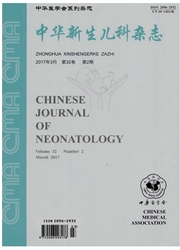

 中文摘要:
中文摘要:
Objective To explore the effects of resveratrol-induced apoptosis and autophagy in T-cell acute lymphoblastic leukemia(T-ALL) cells and potential molecular mechanisms. Methods The anti-proliferation effect of resveratrol-induced, apoptosis and autophagy on T-ALL cells were detected by using MTT test, immunofluorescence, electronic microscope, and flow cytometry, respectively. Western blotting was performed for detecting changes of apoptosis-associated proteins, cell cycle regulatory proteins and state of activation of Akt, mTOR, p70S6K, 4E-BP1, and p38-MAPK. Results Resveratrol inhibited the proliferation and induced apoptosis and autophagy in T-ALL cells in a dose and time-dependent manner. It also induced cell cycle arrest at G0/G1 phase via up regulating cyclin-dependent kinase(CDK) inhibitors p21 and p27 and down regulating cyclin A and cyclin D1. Western blotting revealed that resveratrol significantly decreased the expression of antiapoptotic proteins(Mcl-1 and Bcl-2) and increased the expression of proapoptotic proteins(Bax, Bim, and Bad), and induced cleaved-caspase-3 in a time-dependent manner. Significant increase in ratio of LC3-II/LC3-I and Beclin 1 was also detected. Furthermore, resveratrol induced significant dephosphorylation of Akt, mTOR, p70S6K, and 4E-BP1, but enhanced specific phosphorylation of p38-MAPK which could be blocked by SB203580. When autophagy was suppressed by 3-MA, apoptosis in T-ALL cells induced by resveratrol was enhanced.Conclusion Our findings have suggested that resveratrol induces cell cycle arrest,apoptosis,and autophagy in T-ALL cells through inhibiting Akt/mTOR/p70S6K/4E-BP1 and activating p38-MAPK signaling pathways.Autophagy might play a role as a self-defense mechanism in T-ALL cells treated by resveratrol.Therefore,the reasonable inhibition of autophagy in T-ALL cells may serve as a promising strategy for resveratrol induced apoptosis and can be used as adjuvant chemotherapy for T-ALL.
 英文摘要:
英文摘要:
Objective To explore the effects of resveratrol-induced apoptosis and autophagy in T-cell acute lymphoblastic leukemia (T-ALL) cells and potential molecular mechanisms. Methods The anti-proliferation effect of resveratrol-induced, apoptosis and autophagy on T-ALL cells were detected by using MTI- test, immunofluorescence, electronic microscope, and flow cytometry, respectively. Western blotting was performed for detecting changes of apoptosis-associated proteins, cell cycle regulatory proteins and state of activation of Akt, mTOR, p70S6K, 4E-BP1, and p38-MAPK. Results Resveratrol inhibited the proliferation and dose and time-dependent manner. It also induced cyclin-dependent kinase (CDK) inhibitors p21 and induced apoptosis and autophagy in T-ALL cells in a cell cycle arrest at G0/G1 phase via up regulating p27 and down regulating cyclin A and cyclin D1. Western blotting revealed that resveratrol significantly decreased the expression of antiapoptotic proteins (Mcl-1 and Bcl-2) and increased the expression of proapoptotic proteins (Bax, Bim, and Bad), and induced cleaved-caspase-3 in a time-dependent manner. Significant increase in ratio of LC3-11/LC3-1 and Beclin 1 was also detected. Furthermore, resveratrol induced significant dephosphorylation of Akt, mTOR, p70S6K, and 4E-BP1, but enhanced specific phosphorylation of p38-MAPK which could be blocked by SB203580. When autophagy was suppressed by 3-MA, apoptosis in T-ALL cells induced by resveratrol was enhanced. Conclusion Our findings have suggested that resveratrol induces cell cycle arrest, apoptosis, and autophagy in T-ALL cells through inhibiting Akt/mTOR/p7OS6K/4E-BP1 and activating p38-MAPK signaling pathways. Autophagy might play a role as a self-defense mechanism in T-ALL cells treated by resveratrol. Therefore, the reasonable inhibition of autophagy in T-ALL cells may serve as a promising strategy for resveratrol induced apoptosis and can be used as adjuvant chemotherapy for T-ALL.
 同期刊论文项目
同期刊论文项目
 同项目期刊论文
同项目期刊论文
 期刊信息
期刊信息
